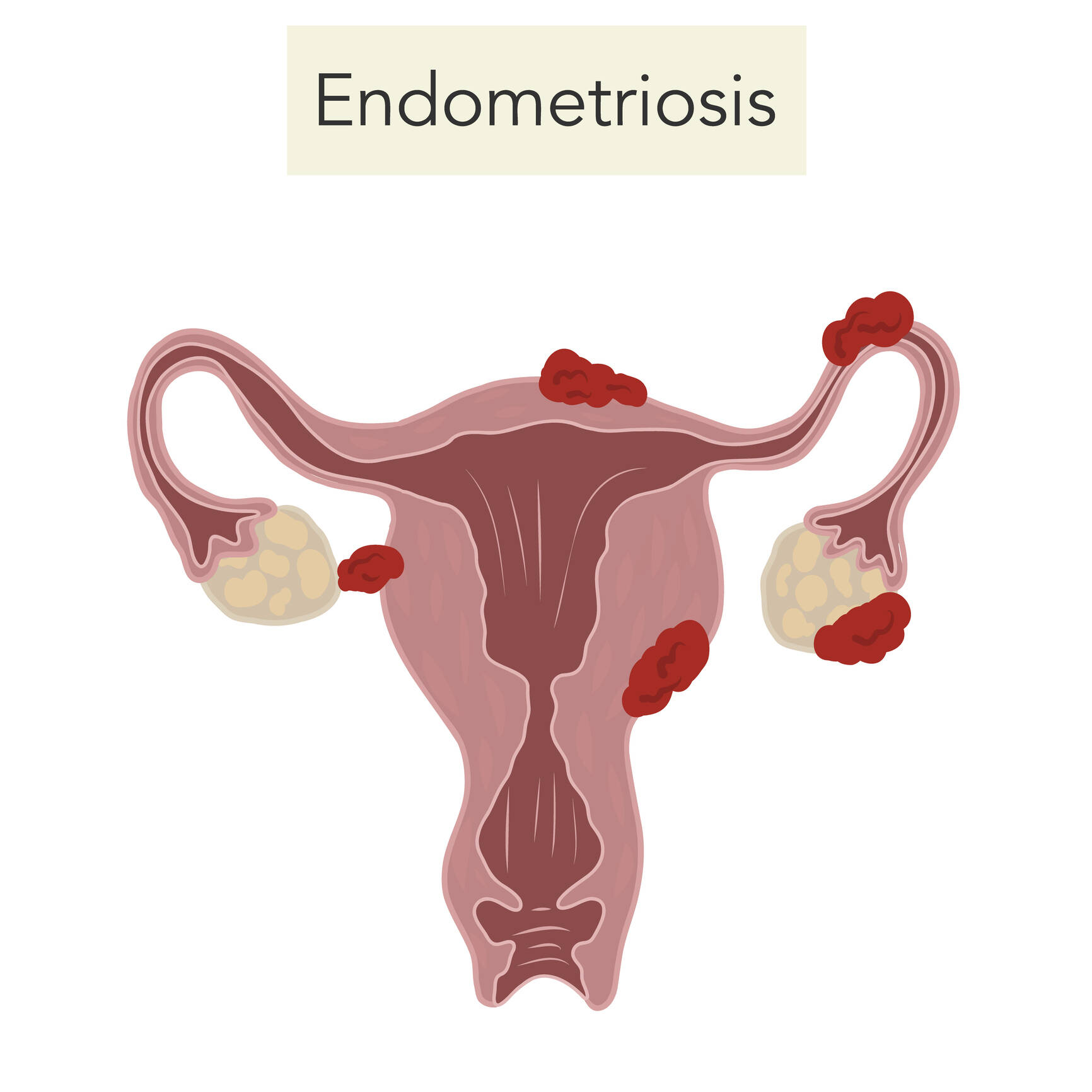Labor reform: Why are experts questioning endometriosis leave? These are the reasons

The labor reform was approved during its fourth and final debate in the Senate plenary on June 17, with 57 votes in favor and 31 against. The Senate now has until June 20, according to the Constitution, to approve the reconciliation with the House of Representatives.

Endometriosis is a condition that many women suffer from without knowing it. Photo: iStock
One of the amended articles was Article 16.e, which originally referred to leave for "disabling menstrual cycles , dysmenorrhea, or abdominal tension associated with previously diagnosed endometriosis." In the text approved by the Senate, the article read as follows:
"Grant workers the necessary paid leave for the following cases: Attending emergency medical appointments or scheduled medical appointments with specialists when the employer is informed along with prior certification, including those cases that fall within the provisions of the Ministry of Health and Social Protection for the diagnosis and treatment of endometriosis included in Law 2338 of 2023."
What does Law 2338 of 2023 say? Law 2338 of 2023 establishes the principles and provisions of public policy for the prevention, early detection, diagnosis, comprehensive treatment, and control of endometriosis, as well as the promotion of social awareness about this disease.
Luz Marina Araque Lara, president and founder of the Colombian Association of Endometriosis and Infertility and co-author of the Endometriosis Colombia Law, explains to EL TIEMPO that this is a multisystemic disease in which tissue similar to that which lines the uterus implants in places where it shouldn't.
This condition primarily affects women of reproductive age, affecting the ovaries, fallopian tubes, and the tissue lining the pelvis. According to the Mayo Clinic, when it affects the ovaries, cysts known as endometriomas can form and cause scar tissue due to chronic irritation.

Severely painful menstrual cramps can be a symptom of endometriosis. Photo: iStock
Endometriosis can cause inflammation and pain, chronic fatigue, general tiredness , digestive problems, heavy bleeding, and irregular periods. In 50 percent of cases, it causes infertility.
It can take years to detect. According to the specialized website Quirón Salud, diagnosis can take an average of 10 to 12 years in Europe. "Among the barriers we at the Colombian Endometriosis Association have found to timely diagnosis are, first, the normalization of menstrual pain and also the lack of expertise among gynecologists and physicians regarding the disease," Araque says.
Article 3 of Law 2338 of 2023 recognizes endometriosis as a chronic, progressive, and debilitating disease that can affect the quality of life of those who suffer from it due to intense pain.
Likewise, Article 9 of the same law introduces a new feature in the workplace: people diagnosed with endometriosis may agree with their employer on flexible hours or the option of working from home, provided this does not affect the operation of the service. This measure seeks to contribute to the well-being, motivation, and productivity of workers.
The regulation also guarantees that, where appropriate, disabilities or handicaps associated with this condition must be recognized , in accordance with the regulations of the Ministry of Health and Social Protection.
What do the experts say about the labor reform proposals? Juliana Morad Acero, director of the Labor Law Department at the Universidad Javeriana, explained to EL TIEMPO that, according to the text approved by the Senate (before the conciliation with the House of Representatives), the employer is obligated to grant paid leave to attend medical appointments , without these being necessarily related to a diagnosis of endometriosis, as long as a certification is available.

Endometriosis involves the presence of tissue similar to the lining of the uterus outside of the uterus. Photo: iStock
According to Acero, it's important to understand that this isn't a disability, like the ones that currently exist, but rather a paid leave that must be covered directly by the employer.
Morad warns that, while this measure seeks to recognize endometriosis and highlight its impact on women's working lives, it could also have the opposite effect: increasing barriers to accessing formal employment.
"This measure can be interpreted as a differential cost for women suffering from endometriosis. Currently, we are already more expensive in the labor market due to maternity leave. Added to this is the fact that employers will now be required to provide us with paid leave. This means they will have to assume more costs for women," she points out.
Furthermore, she mentions that, in the future, it could reinforce gender discrimination in the workplace:
“Women already face barriers to entering the labor market. In principle, this can be interpreted as a positive initiative to combat discrimination. However, what it will do is increase the costs, disparities, and therefore the discrimination that already exists in the labor market. These types of measures, which create higher costs for women, have the opposite effect to what is intended,” she concludes.
For her part, Araque asserts that Law 2338 of 2023 provides a much broader, deeper, more detailed, and comprehensive approach not only to endometriosis, but also to other conditions associated with menstruation. “This goes far beyond receiving paid leave. Its management must be interdisciplinary and comprehensive; it cannot be reduced simply to a leave of absence ,” she adds.
According to Araque, the ability to attend medical appointments contributes to the follow-up and monitoring of patients with this disease. However, "allowing paid medical appointments doesn't have much impact. What does have an impact is the education and training of specialists so that there is a care pathway and integrative care protocols. This is already contemplated in the public policy regulated by Law 2338 of 2023."
For Araque, endometriosis has been undervalued for years and even minimized by specialists themselves. She also highlights that in Colombia, the disease is underreported because before the law, there were no reliable statistical data, except for those compiled by the Association and the WHO estimate, which indicates that between 10 and 15 percent of menstruating women suffer from it.
“There needs to be a lot of awareness and sensitivity not only among those who suffer from it, but also among those close to them,” she affirms. At the same time, she questions the need to “reduce the concept of menstrual leave as reduced as that of labor reform. This requires a comprehensive public policy for an appropriate and comprehensive approach. And that already exists.”
To advance the implementation of the law, Araque emphasizes that training and raising awareness among employers is key. “We need employers to understand that we did not choose to have this diagnosis, which can affect any girl, young woman, or woman at any point in her reproductive life. There must be much greater understanding because the labor rights of patients with endometriosis are also human rights ,” she concludes.
ANGIE RODRÍGUEZ - LIFE TODAY EDITORIAL - @ANGS0614
eltiempo




